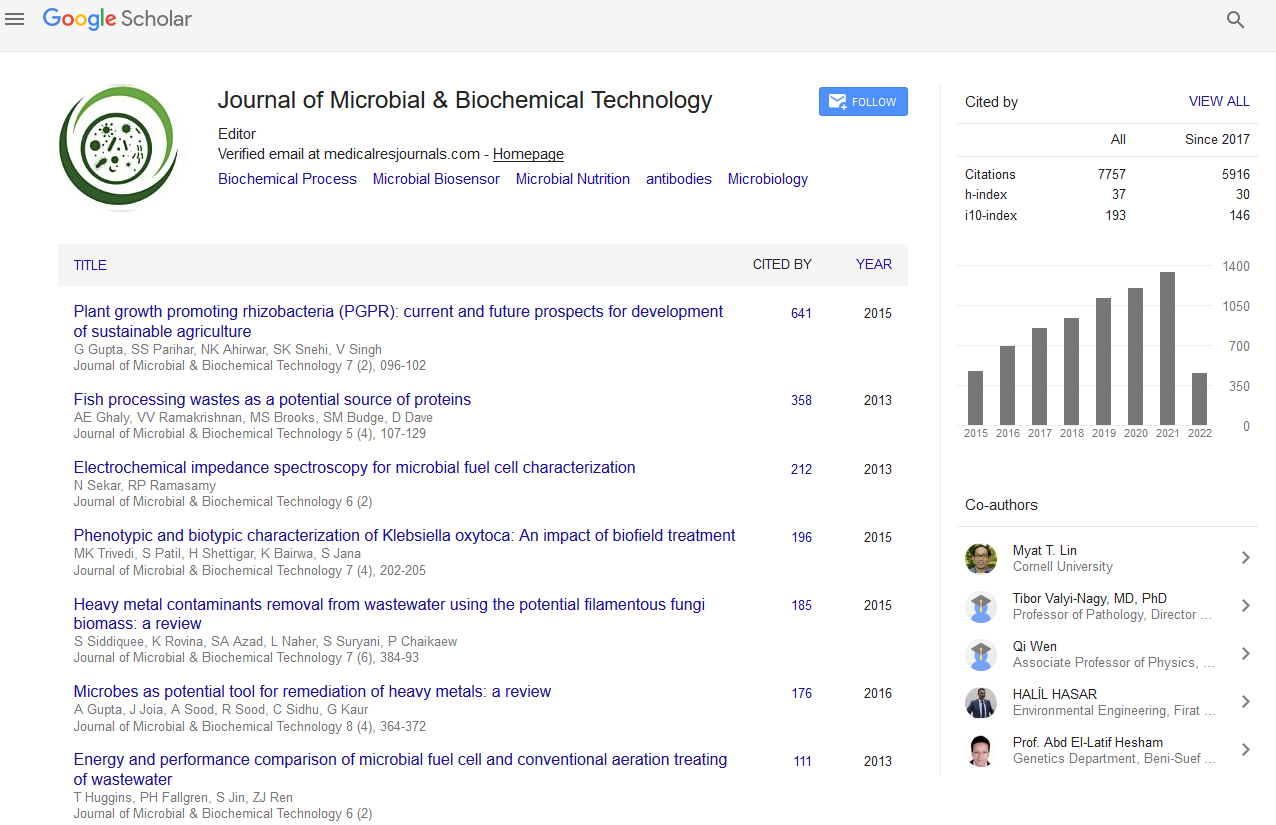PMC/PubMed Indexed Articles
Indexed In
- Academic Journals Database
- Genamics JournalSeek
- Academic Keys
- JournalTOCs
- China National Knowledge Infrastructure (CNKI)
- Scimago
- Access to Global Online Research in Agriculture (AGORA)
- Electronic Journals Library
- RefSeek
- Directory of Research Journal Indexing (DRJI)
- Hamdard University
- EBSCO A-Z
- OCLC- WorldCat
- SWB online catalog
- Virtual Library of Biology (vifabio)
- Publons
- MIAR
- University Grants Commission
- Geneva Foundation for Medical Education and Research
- Euro Pub
- Google Scholar
Useful Links
Share This Page
Journal Flyer

Open Access Journals
- Agri and Aquaculture
- Biochemistry
- Bioinformatics & Systems Biology
- Business & Management
- Chemistry
- Clinical Sciences
- Engineering
- Food & Nutrition
- General Science
- Genetics & Molecular Biology
- Immunology & Microbiology
- Medical Sciences
- Neuroscience & Psychology
- Nursing & Health Care
- Pharmaceutical Sciences
Culture dependent and independent analyses of throat swabs reveal role for bacterial pathogens other than group A Streptococcus in pharyngitis
2nd International Conference on Clinical Microbiology & Microbial Genomics
September 16-17, 2013 Hampton Inn Tropicana, Las Vegas, NV, USA
Shunmugiah Karutha Pandian
Accepted Abstracts: J Microb Biochem Technol
Abstract:
Till date, group A Streptococcus (GAS) are believed to be the major causative agent for bacterial pharyngitis. The undisclosed co-existence and possible contribution of other bacteria in causing pharyngitis is to be highly focused and explored in order to gain greater understanding to improve our knowledge in prescribing appropriate methods and measures for its prevention. Terminal Restriction Fragment Length Polymorphism (T-RFLP) and Denaturing Gradient Gel Electrophoresis (DGGE) analysis are nucleic acid based techniques which were used in the present study to explore the prevalence of bacterial communities other than GAS. Throat swabs from pharyngitis patients and healthy subjects were collected and subjected to metagenomic DNA extraction and analysed using T-RFLP and DGGE. The results from the culture independent techniques revealed an unexpected diversity of causative pathogens like Neisseria sp., Haemophilus influnzae, Klebsiella pneumonia, Staphylococcus aureus etc from throat swabs of pharyngitis patients compared to that of healthy subjects. Furthermore, the results clearly depicted the higher prevalence of GAS in throats of pharyngitis cases than that of healthy individuals. In addition, the band intensity analysis of DGGE showed a rich occurrence of S. aureus in the pharyngitis throats which made us curious to study its prevalence in pharyngitis cases through culture-dependent analysis. The molecular epidemiology (culture-dependent analysis) of S. aureus in throat swabs (n=265) of pharyngitis patients revealed that 165 swabs as positive, among which 63 were found to be methicillin-resistant and the remaining as methicillin-susceptible S. aureus . An interesting result was that amongst the 63 throat swabs positive for MRSA, 33 were found to co-exist with GAS and that implies that the remaining 30 pharyngitis cases could be due to the infection of active MRSA. Further, 26 MRSA isolates were selected for the molecular characterization through multilocus sequence typing and eBURST analysis, which resulted in 12 different sequence types (STs), including a novel ST2129 and 5 different clonal clusters (CCs) respectively. The antimicrobial susceptibility patterns of the recovered MRSA isolates showed high level of multidrug- resistance, including 10 MRSA isolates intermediate to vancomycin. From the results of the culture dependent and independent analyses, we hypothesize that S. aureus , particularly MRSA could play a possible role in pharyngitis infection on its own or in association with GAS.
Biography :
Shunmugiah Karutha Pandian is the Head of the Department of Biotechnology and the Dean of Research at Alagappa University, Karaikudi, Tamil Nadu, India. His research group is actively working on studying the biofilm formation and gene regulation of various human bacterial pathogens, and characterizing novel anti-quorum sensing and antibiofilm compounds against human and aquaculture pathogens from marine resources. He has published more than 100 research papers in SCI journals including 50 papers in the field of clinical microbiology


